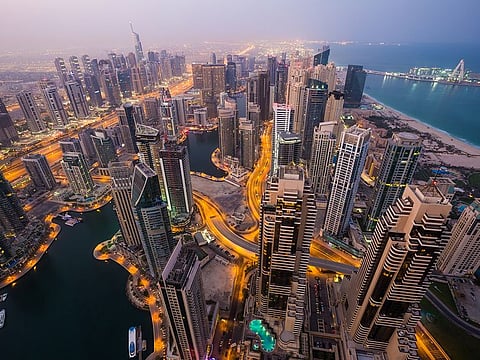On new leases, Dubai, Sharjah mid-market homes record sharp rent increases
If Dubai's biggest rent increases are during renewals, in Sharjah, it's for new leases

Dubai: Residents looking to shift to mid- to upper-mid range homes for rent in Dubai and Sharjah are now facing some of the biggest increases on their annual lease rates.
While such increases were expected in Dubai after the updated RERA Rental Index came into effect in March, the spike in Sharjah residential rates during the April to June period comes as a relative surprise. Popular Sharjah neighborhoods such as Al Majaz, Al Nahda and Al Qasimia have seen rents shoot up by 15, 17 and 14 per cent, respectively, in the 12 months ending June, according to the new property market status report from Asteco.
That means, a two-bedroom apartment in Al Majaz currently commands up to Dh60,000 a year, while those in Al Nahda would be between Dh25,000 to Dh50,000 (depending on factors such as age of the building, relative location, etc.). Those two-bedroom options in Al Qasimia would be between Dh20,000-Dh40,000.
What’s even more striking is that in the April to June phase, in-demand Sharjah residential locations have seen asking rates shoot up by 5-9 per cent. For the better part of 2023 and even in the first three months of this year, rent increases in Sharjah were relatively marginal.
Even with landlords charging more – and getting those numbers – a tenant shifting to a new apartment or entering a lease for the first time still get the benefit of strict rules on further increases. Landlords are not allowed to hike rates for the first three years on a new lease. And even after that period is over, there can be an increase once every two years.
Property agents say that Sharjah’s rental market is increasingly driven by new residents, and that vacancy levels have drastically come down in the last 4-8 weeks.
No easing for Dubai’s mid-market home rents
In Dubai, going by first-half 2024 trends, it’s clear that the property market will close the year with a fourth successive year of rental growth. According to the Asteco report, rental growth may actually be slowing down in some of the upscale locations.
That’s definitely not the case in other areas. Considering an apartment in JLT or Business Bay? Then be prepared to pay – on average – 10 per cent higher on a new lease compared to a year ago. That would mean anywhere between Dh90,000 to Dh200,000 for a two-bedroom unit in Business Bay and Dh80,000-Dh180,000 for similar options in JLT.
If the resident is scouting for an option at a lower rate, then Jumeirah Village has two-bed units in the Dh70,000-Dh150 range. But that location has gone through a sharp 18 per cent rent increase on average in the last 12 months. And a sizeable 7 per cent in just the second quarter.
“The pursuit of affordability has driven more pronounced rental increases and activity in the lower and mid-end segments),” says the Asteco report. “This trend benefited affordable communities within Dubai, such as Emaar South, Damac Hills 2 and Town Square, as well as the Northern Emirates, which offer lower rents and attract tenants with their growing supply of quality developments, improved infrastructure and enhanced accessibility.”
Different dynamics for rent renewals
For tenants who are up for renewals in Dubai, it’s still a fluid situation. As per the RERA index, landlords can demand increases of up to 20 per cent at renewal if the current rate is way below the market average. But there have been tenants who say that in many cases the new rate has been set above the RERA mandate, and which they are contesting in Dubai’s Rental Disputes Center.
It could well be that the Dubai residential rentals in the mid-upper mid space will take longer to cool down. Some industry watchers reckon that could be during the summer of 2025.
But high rents remain a challenge. “Whilst Dubai’s strong economy and attractive lifestyle continue to draw expatriates, the rising cost of living presents a challenge. Although the government actively seeks to attract foreign investment and talent, ensuring affordability is crucial for transforming short-term residents into long-term community contributors,” says the Asteo report.
Sign up for the Daily Briefing
Get the latest news and updates straight to your inbox


